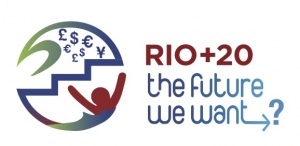Fault Lines - The other debt crisis: Climate debt
Melting glaciers are threatening the water supply of the country’s two biggest cities. Increasing droughts and floods are playing havoc with agriculture.
So it is no surprise that in climate negotiations, Bolivia is emerging as a leader in the global south - advancing both radical solutions and analysis that make rich countries distinctly nervous.
On this edition of Fault Lines, Avi Lewis travels to Bolivia to explore the country’s climate crusade from the inside.
It is the story of an emerging movement, based in the global south, raising questions about who owes what to whom in confronting the climate crisis.
And it is playing out in Bolivia’s epic landscape - from the tropical glaciers to the endless salt flats. A landscape that in normal times seems to mock the very idea that human beings can change the course of nature.
This episode of Fault Lines can be seen from Thursday, May 20, 2010 at the following times GMT: Thursday: 0600; Friday: 0030, 0830; Saturday: 2330; Sunday: 0630, 2130; Tuesday: 0530, 1230; Wednesday: 0300.
